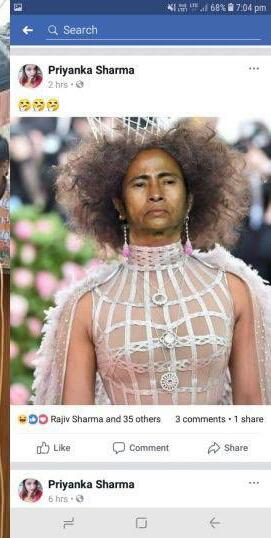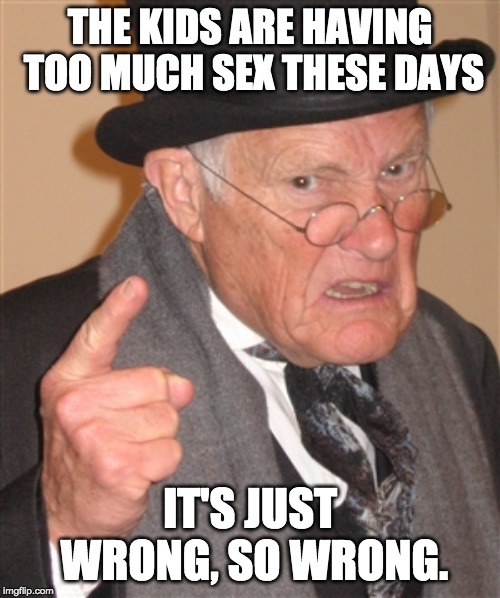[Editorial Note: Justice is an indivisible concept. We cannot, therefore, discuss contemporary Supreme Court judgments without also acknowledging the Court’s failure – at an institutional level – to do justice in the case involving sexual harassment allegations against the Chief Justice. This editorial caveat will remain in place for all future posts on this blog dealing with the Supreme Court, until there is a material change in circumstances.]
Last week, I had written about the Punjab & Haryana High Court’s patently illegal order, where it made the quashing of an FIR conditional upon the accused paying a sum of Rs. 10 lakhs. This sort of behaviour appears to be infectious: today’s Supreme Court order directing Priyanka Sharma to “tender an apology” for sharing a meme about West Bengal CM Mamata Bannerjee is yet another example of the judiciary abdicating its role as the guardian of fundamental rights, and opting to play moral censor instead.
The facts are straightforward. Priyanka Sharma was arrested – and then sent to fourteen days’ judicial custody for sharing the following meme on Facebook:

This is, evidently, the head of CM Mamata Bannerjee photoshopped upon Priyanka Chopra’s costume at the met gala. The West Bengal police deemed it fit to book Sharma under Sections 66A and 67A of the IT Act, and Section 500 of the IPC. A moment’s reflection should make it clear that this entirely unsustainable. Section 66A was struck down as unconstitutional in March 2015, more than four years ago. Section 67A – the only non-bailable provision among these – which penalises transmitting images of sexually explicit acts or conduct, is inapplicable on the face of it. And it’s unclear how a piece of pure political satire attacks the reputation of the CM in a way that might bring it within the definition of defamation.
This, therefore, was not even remotely a case where remand was justified. When the petitioner approached the Supreme Court with a habeas corpus petition, therefore, there was an immediate opportunity to set things right. There was also a larger opportunity: this is not the first time that people have been arrested or remanded for making memes. Across India, for many years now, there have been reports of similar instances, where the police appear to act upon political directions, and the magistrates – the first lines of defence – act as rubber stamps. Clear orders from the Supreme Court, in this case, could have gone a long way in discouraging this practice.
Instead, what happened at the Court today makes for grim reading. Instead of limiting itself to its job – to see whether the remand was justified – the Court promptly entered into the merits of the case itself. According to Indira Banerjee J. , it was “wrong to put one person’s face on another” (welcome to the 21st century!). According to Sanjiv Khanna J., the problem was that Sharma was from “an opposite political party, and not a common citizen” (what does that have to do with bail?). The judges then dictated an order where, originally, Sharma’s release was made conditional upon her apologising (an order that would have been patently illegal for the same reasons that I have discussed in my previous post about the P&H High Court), but then recalled that, made her release unconditional, but nevertheless directed her to apologise. In addition, they left the “larger question” (of making memes?) open.
But in some ways, this is even worse. Presumably, if Sharma refuses to apologise, it will amount to contempt of court, and she will be subjected to prosecution. Effectively, then, the Court has told her to apologise or face the possibility of jail time. This, however, is nothing other than compelled speech: forcing a person to say something that they would rather not, on the thread of sanction. And compelled speech is as serious a violation of Article 19(1)(a) as limitations upon expression. In other words, this is yet another example of (lawless) judicial censorship – a trend begun in the days of Dipak Misra J., and now carried on by worthy successors – which finds no basis in the Constitution.
It hardly needs to be stated – yet again – that none of this had anything to do with the question of whether or not Sharma should have been granted bail.
At a more deeper level, today’s hearing reveals yet again the sad truth that when it comes to free speech issues, judges seem simply incapable of applying the law and the Constitution. The standard they do seem to apply is “if I don’t like it, it must be wrong, and I’m going to do something about it.” That would be fine if they were sitting as family elders mediating a domestic quarrel; it certainly isn’t fine when they are sitting as judges in a constitutional court.
This almost visceral unease with any form of expression that seems to go beyond judges’ personal comfort zone is evident from Banerjee J.’s anguished “it is wrong to put one person’s face upon another”, and her Delphic “free speech is non-negotiable, but it ends where the rights of others begin.” On the second point, apart from the fact that no “right” of anybody else was involved in this case (not even the “right to reputation” that Dipak Misra J. bizarrely raised up to the status of Article 21 in the criminal defamation case), it’s also important to note – on a point of law – that unlike many other Constitutions, the Indian Constitution does not limit free speech on the basis of a generic “rights of others” clause; Article 19(2) is entirely specific about the grounds on which free speech can be restricted, and it is not open to the Court to traverse beyond them. And on the first, Banerjee J.’s reaction to the arcane concept of photoshop is itself worthy of a meme, but since the legality of that is now in doubt until the Supreme Court hears the “larger issue”, we must make do with a generic meme:

Last week, it was the P&H High Court saying “[unsustainable criminal] charges against you will be quashed, but pay Rs. 10 lakhs for the privilege.” Today, it is the Supreme Court saying, “your [illegal] remand will be quashed, but you must apologise.” It remains to be seen what novel way the courts will find next week to show us that they couldn’t care less about following the law and the Constitution on issues of free speech.

Caricature or disfigurement or a political satire are forms of expression..can the government or for that matter policing permissible ? Supreme Court ought to have condemned the arrest instead of asking the victim to succumb.. hope to see constitutional wisdom blossoms in courts soon
Gautam Bhatia, Can you also issue an editorial note demanding justice for me. A woman lawyer with a great CV whose life, reputation, career, property and body has been destroyed for 9 years now only because she exposed corruption by General Electric Company in the Marhowra Rail loco tender and because she made complaints of sexual harassment against Soli Sorabjee and Raian Karanjawala.
I told Judges Khanwilkar and Rastogi in the Supreme Court on 11 April 2019 that I was being poisoned and that before hearing my cases I needed protection. I told them that a medical examination at AIIMS would confirm poisoning. They failed to even mention this in the order.
Why the EXTREME silence on the denial of justice to me?
The only way to deal with these frivolous cases is if the complaint is only filed on basis of written submission by the affected party – in this case Mamta Baneerjee. Police officers who are found to have tacked prima facie inadmissible IPC sections should pay with loss of seniority/pay and monetary compensation to the affected.
[…] GAUTAM BHATIA is horrified by a ruling by the Indian Supreme Court on a Facebook meme that mocks a politician. A user who shared the meme was imprisoned for two weeks – and the court, instead of defending her fundamental rights, sentenced her to apologize to the politician. For Bhatia, the ruling is " yet another example of the judiciary abdicating its role as the guardian of fundamental rights, and opting to play moral censor instead". […]
[…] Bhatia, The Supreme Court and Memes, Indian Constitutional Law and […]
[…] https://indconlawphil.wordpress.com/2019/05/14/the-supreme-court-and-memes/ […]